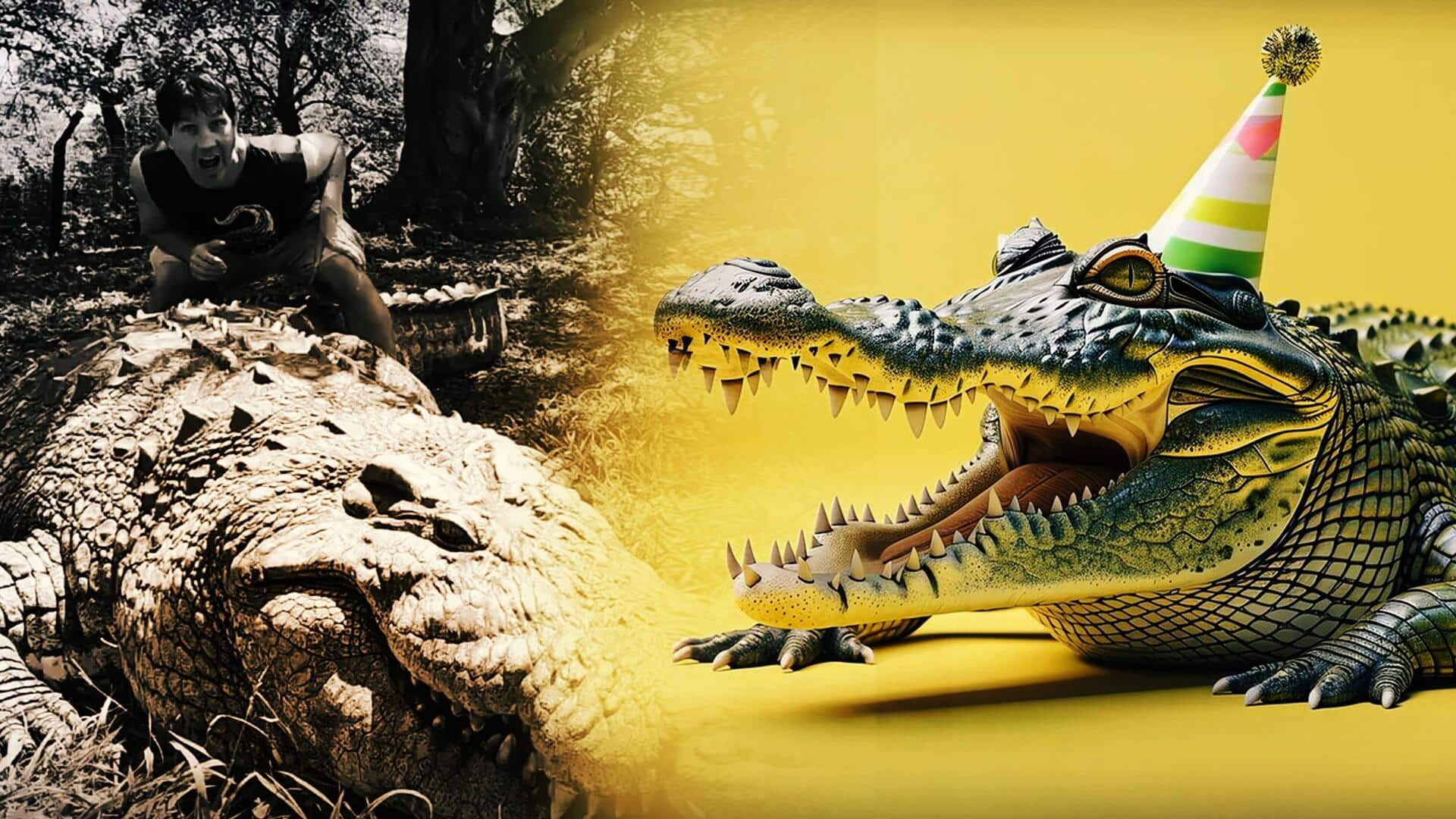
World's oldest crocodile, Henry, celebrates 124th birthday
What's the story
Henry, the world's oldest known crocodile, celebrated his 124th birthday on Monday at South Africa's Crocworld Conservation Centre.
The Nile crocodile has lived at the sanctuary since 1985 after being captured from Botswana's Okavango Delta in 1903.
While his exact birthdate remains a mystery, staff at Crocworld estimate he was born around the year 1900.
Prolific progenitor
Henry, father to over 10,000 offspring
Since joining the conservation center, Henry has fathered more than 10,000 offspring.
His incredible longevity has intrigued biologists studying animal aging.
University of Alabama biologist Steven Austad spoke about Henry's age to Live Science, saying, "He's clearly old. Whether he's 100 or 130, we don't know. An age of 124 is not impossible for a crocodile."
Long life factors
Reptilian longevity: The secret behind Henry's age
Reptiles like Henry tend to live longer because they are cold-blooded and conserve energy.
Austad explained that reptiles have slower metabolisms, which is why they live longer lives.
He noted verbatim: "A crocodile the same size as a person would only eat 4% as much," which adds to their longevity.
Protected life
Henry's size and safe environment contribute to longevity
Henry's size and safety in captivity also play a role in his long life.
Weighing 699kg and measuring 16.4 feet (5 meters), he is quite large for his species.
His protected environment at Crocworld also protects him from predators and disease, further adding to his lifespan.
Austad remarked, "Animals in safe environments tend to live longer," which has been true for Henry.
Research difficulties
The challenges of studying reptilian longevity
Despite the known reptilian longevity, understanding it is still difficult for researchers.
Some speculate Henry's immune system and gut microbiome contribute to his survival.
There are suggestions crocodile blood proteins may have antibacterial properties, helping them resist infections.
Austad humorously noted, "Crocodiles live longer than the careers of scientists studying them," emphasizing the challenge of studying creatures with such long lifespans.